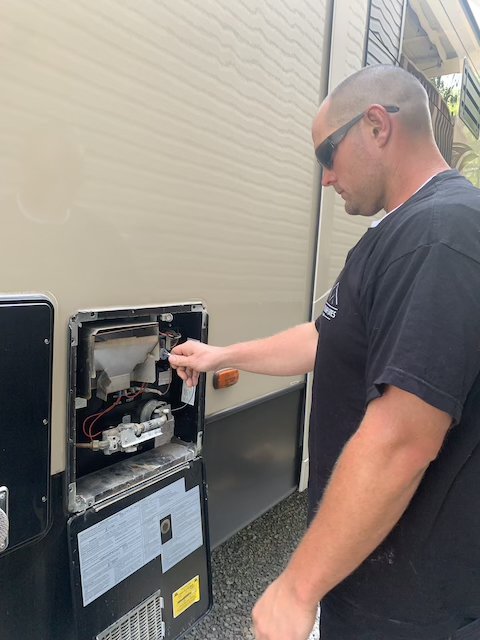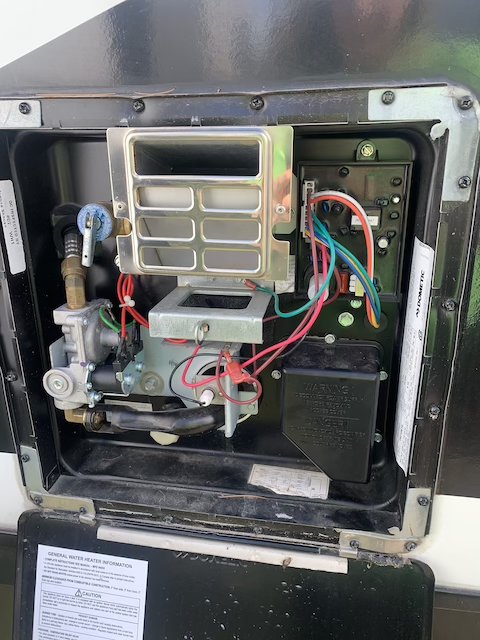
Pullthroughsites.com
Regular inspections and servicing may save an expensive repair bill.
One of the main reasons we moved from tent life to RV life ten years ago was for the added comfort, including having hot water. There is nothing like a steaming shower after hiking the amazing trails of Canada.
As cold weather becomes more prevalent across regions of North America, the more our mobile RV repair service business receives calls to address hot water heater problems. We frequently help with troubleshooting, complete repairs, and educate our customers about best practices.
Common Problems, Failures and Causes
A common complaint among RVers is that a water heater is not producing hot water. To better diagnose the problem, we first ask if the system is operated by propane or power. If they are using power, we suggest switching the system to propane, if applicable, and vice versa. This narrows down a solution for our technicians and may even be a simple fix to save a repair bill.
Many systems in an RV, water heaters included, operate within a chain of other systems. For instance, when you flip the switch on the water heater - whether by electricity or propane - it signals the control board on the heater, which provides operation.
When we can’t immediately solve the problem, we inspect the control board to determine if a signal is coming in and going out that either triggers the ignitor for propane or to signal for electric heat. In simpler terms, when hot water is not being produced, the cause may be a faulty switch or ignitor, which can be replaced.

Pullthroughsites.com
Repairs and Costs
Replacing an ignitor or a switch is relatively inexpensive and may cost less than $100. However, we have seen the actual control board breakdown, which can be between $100 and $200. It’s still reasonable given the cost of an RV hot water heater but repair bills can quickly increase when there are multiple problems.
For example, if a hot water tank needs to be replaced, it can be upwards of $1,000 or more. Modifications may also have to be made to properly accommodate your RV like Installing an electrical outlet or fitting in a new access door, resulting in additional costs.
Best Practices
We encourage RVers to understand how a water heater works and ensure there are adequate amounts of propane or power. Also, if water is leaking in the area of the heater, there’s a 90 percent chance there’s a leak in the tank and needs to be replaced. One best practice we always suggest is to winterize a motorhome or trailer properly. We have replaced many tanks with cracks caused by improper winter storage.
RV hot water heaters are not sophisticated. By understanding how they operate, ensuring proper winter storage, and doing maintenance when needed, you’ll always have hot water when you need it.